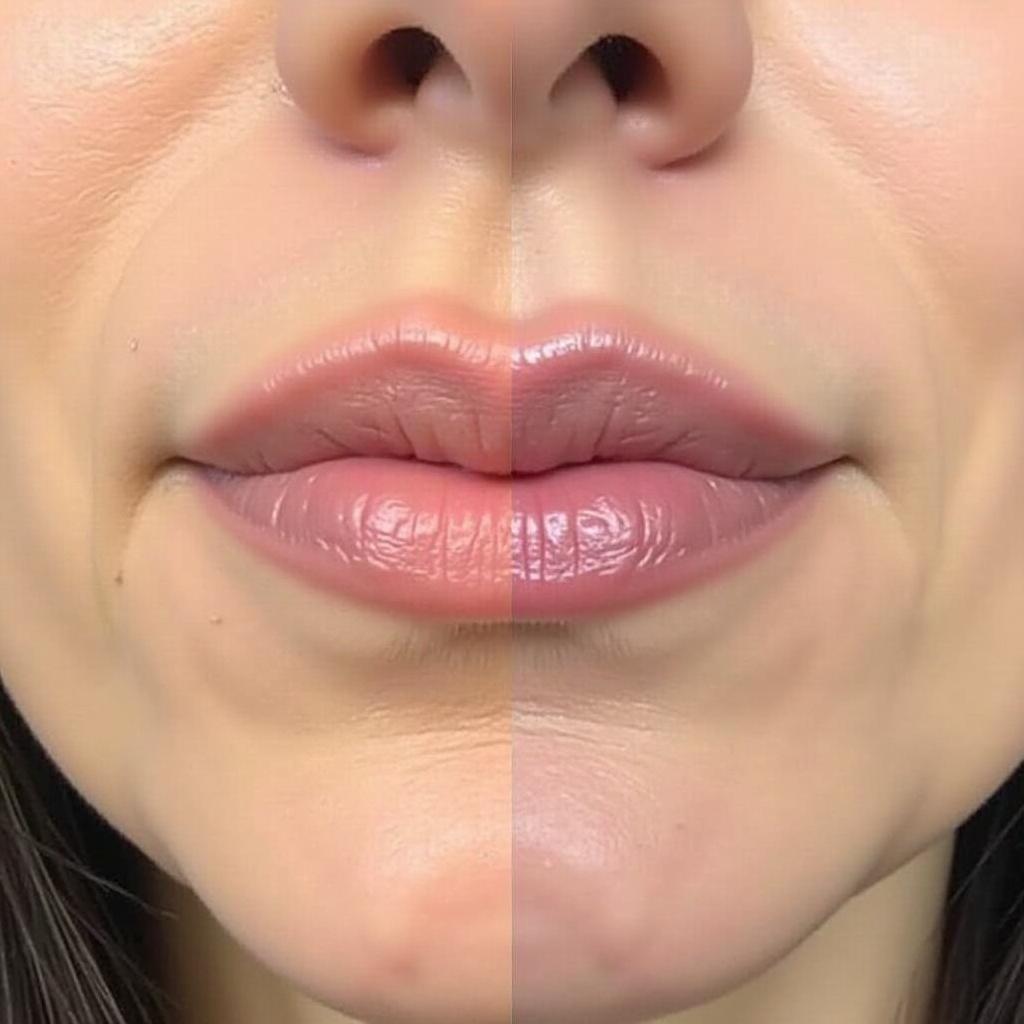What Happens When You Sleep With Mascara On?
- AmazoniaSilva
- Tháng 12 23, 2024
- Zodiac signs
- 0 Comments
Leaving your mascara on overnight might seem harmless after a long day, but it can actually have some negative consequences for your eye health and the appearance of your lashes. This article will delve into the potential problems associated with sleeping in mascara and provide you with tips for maintaining healthy, beautiful lashes.
The Downside of Sleeping in Your Mascara
Sleeping with mascara on can lead to a number of issues, from dry, brittle lashes to potential eye infections. Let’s explore these in more detail:
- Brittle Lashes: Mascara can dry out your lashes, making them prone to breakage and fallout. Over time, this can lead to thinner, sparser lashes.
- Eye Irritation: Mascara particles can flake off during the night and get into your eyes, causing irritation, redness, and even infection.
- Styes and Infections: Mascara can trap bacteria near your lash line, increasing the risk of developing styes or other eye infections like conjunctivitis.
- Damaged Lash Follicles: Repeatedly sleeping in mascara can clog the hair follicles of your lashes, potentially hindering their growth and leading to permanent damage.
Why Removing Mascara is Crucial for Lash Health
Removing your mascara every night is essential for maintaining the health and strength of your lashes. It allows your lashes to breathe and regenerate, preventing damage and promoting growth.
- Allows for Natural Oil Replenishment: Your lashes naturally produce oils that keep them conditioned. Removing mascara allows these oils to coat the lashes, keeping them moisturized and preventing breakage.
- Reduces the Risk of Infection: Thorough mascara removal eliminates bacteria and debris that can cause eye infections.
- Promotes Lash Growth: Clean, unclogged follicles are crucial for healthy lash growth. Removing mascara prevents blockages and allows lashes to grow to their full potential.
How to Properly Remove Your Mascara
Removing your mascara doesn’t have to be a complicated process. Here’s a step-by-step guide:
- Choose a Gentle Eye Makeup Remover: Opt for an oil-based or micellar water remover, as these are effective at dissolving mascara without harsh rubbing.
- Saturate a Cotton Pad: Apply enough remover to thoroughly soak the cotton pad.
- Hold the Pad Against Your Eye: Gently press the saturated cotton pad against your closed eyelid for a few seconds to allow the mascara to dissolve.
- Wipe Gently Downwards: Sweep the cotton pad downwards from the root to the tip of your lashes. Avoid rubbing back and forth, as this can damage your lashes.
- Repeat as Needed: Continue using fresh cotton pads until all traces of mascara are removed.
Is Waterproof Mascara Worse for Sleeping In?
Waterproof mascara is particularly difficult to remove and can be even more damaging to your lashes if left on overnight. Its long-lasting formula can adhere strongly to your lashes, increasing the likelihood of breakage and follicle clogging. While it’s great for special occasions, avoid using it for everyday wear if possible.
“Leaving waterproof mascara on overnight is like suffocating your lashes,” says Dr. Amelia Reed, a leading ophthalmologist. “The formula creates a barrier that prevents your lashes from breathing and receiving essential nutrients, increasing the risk of damage and breakage.”
What Happens When You Sleep With Mascara On: A Summary
Sleeping with mascara on, especially waterproof mascara, can damage your lashes, cause eye irritation, and increase the risk of infection. Removing your mascara every night is a simple yet crucial step in maintaining healthy, beautiful lashes. By following the tips outlined in this article, you can protect your lashes and keep them looking their best.
FAQs
- Can sleeping with mascara on cause blindness? While extremely rare, severe eye infections caused by improper mascara hygiene can potentially lead to complications.
- What’s the best type of makeup remover for sensitive eyes? Micellar water is often recommended for sensitive eyes due to its gentle formulation.
- How often should I replace my mascara? Mascara should be replaced every 3-6 months to prevent bacterial growth.
- Can I use baby oil to remove mascara? While baby oil can remove mascara, it can also leave a residue that can clog pores and lead to styes.
- What are some signs of an eye infection? Redness, itching, discharge, and swelling are common signs of an eye infection.
Other Articles You Might Find Helpful
- The Ultimate Guide to Lash Care
- How to Choose the Right Mascara for Your Lash Type
Need more help? Contact us at [email protected] or visit our office at Fifth Avenue, 34th Floor, New York, NY 10118, USA. We have a 24/7 customer service team.
